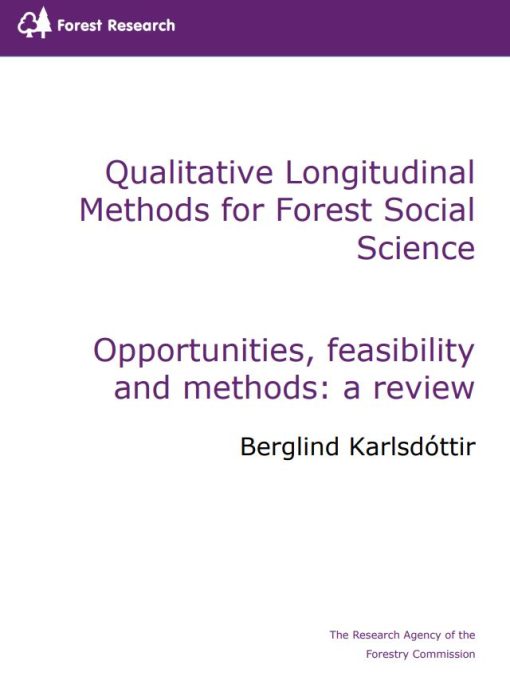Overview
This review describes qualitative longitudinal research (QL), the different approaches used for QL research in the social sciences, and the benefits and limitations of this methodology. It then comments on the feasibility and benefits of using this methodology to understand the social implications of forest-based interventions.
The review has two components: a narrative review of current QL literature with a number of case study examples; and a structured review of papers applying a QL methodology in a tree, woodland or forest-based context.
A total of 13 papers were included in the structured review. Based on the review findings, QL bears promise for forestry social science research. In the light of the current rate of environmental changes and human interventions impacting the environment, there is a need to study changes and impacts real-life as they take place.
There is also currently a lack of high-quality QL research in the field and the methodology is likely to result in new findings around the more intangible human experience of environmental changes – findings which are difficult to capture with existing qualitative research on the topic.

